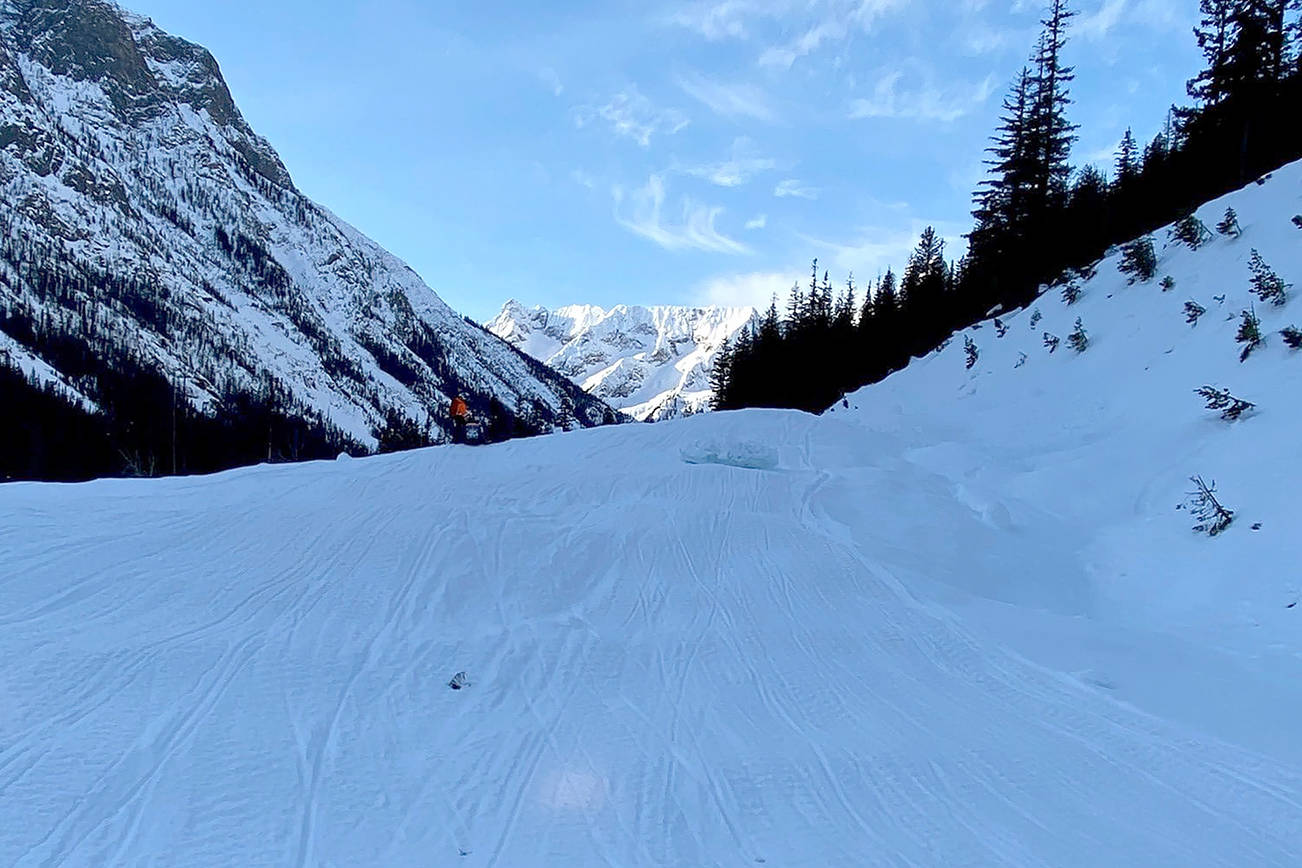In the wake of a historic heat wave, snow has been melting off.
According to the U.S. Department of Agriculture (USDA), North Puget Sound near Bellingham and the Central Columbia basins were either snow-free or close as of July 2. On the contrary, South Puget Sound and the Lower Columbia Basin were both over 139 percent of normal snowpack.
In King County, the Olallie Meadows site, which sits at around 4,000 feet and is monitored by the USDA, had around 25 inches of snow on the ground during the week of June 20. This entirely melted by June 28.
Scott Pattee, water supply specialist with the Washington Snow Survey Office, said they have seen significant melting over the past few weeks because of heat.
“It kicked it in the butt and got it rolling off pretty quickly,” he said.
Several snowpacks had good levels of snow this year due to a cool dry spring. Snowpack generally peaks around April 1, and begins to melt off afterwards.
In the Snoqualmie River system, water levels are currently higher than normal, and had been for the past week, as of July 1. The Snoqualmie River system is a relatively low elevation system, and is reliant on water running down from the mountains. Even though there isn’t that natural built-in snow storage, the groundwater supplies are amazing, Pattee said.
When snowpack begins melting, the groundwater reservoirs and soils absorb what they need first before the melted snow starts running into streams and rivers. As the season progresses, the stream flows start receding and water starts to be pulled from groundwater. This is what ideally maintains flows until the rainy fall season.
But a hot, dry summer could wreak havoc on the river system. The National Weather Service is projecting that Western Washington will likely see hotter temperatures this summer — and lower than normal precipitation. This is in line with how climate scientists are expecting climate change to impact the Snoqualmie Valley.
Warming temperatures in the summer will further reduce snowpack, and heavier rains in the winter could increase the severity or frequency of floods. King County has seen instances of this in recent years.
Pattee said it will likely be important to conserve water this summer.
“The more water we can keep in the streams, the less water we’ll pull from the groundwater supplies,” he said.
Some strategies to conserve water include not watering lawns every day, which isn’t necessary west of the Cascades. Washing cars frequently isn’t good for water conservation either. Residents can also upgrade their plumbing fixtures and look for water leaks to help save water.


